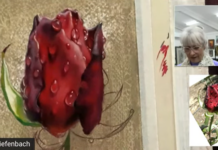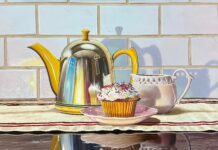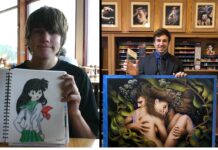Before you reach for that tube of white paint, see what Lori McNee has to say about how much color it takes to create the illusion of white, and give more life to your next work. Bonus: scroll down for a video preview on luminous painting.
BY LORI MCNEE
(lorimcnee.com)
Creating the illusion of white, such as in snow, clouds, animals, or still life objects, can be trickier than one might think. Often, a beginning painter will simply reach for the tube of white paint and call it good, but later wonders why the artwork looks dull, flat, and lifeless.
The reason is this: Although white makes a color lighter, it also removes its vibrancy and brightness.
To illustrate just how much color really goes into painting the illusion of white, let’s look at my still life painting “Harey Situation.”
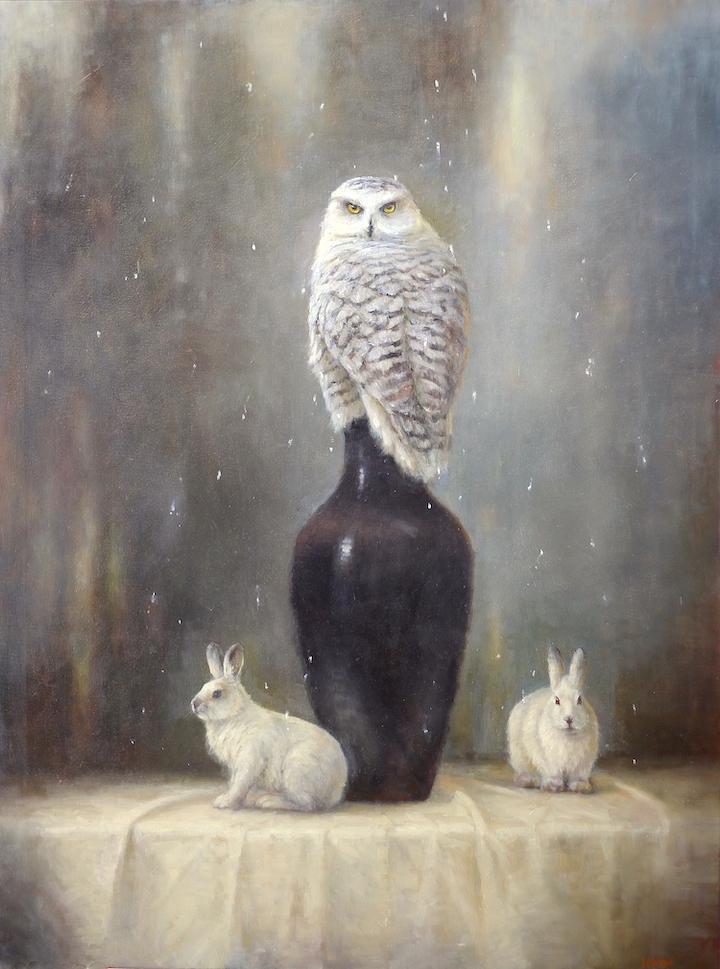
At first glance, this painting looks like I used a lot of white straight out of the tube to create the white tablecloth, the white snowy owl, the white snowshoe hares, and even the white snowflakes.
But look again!
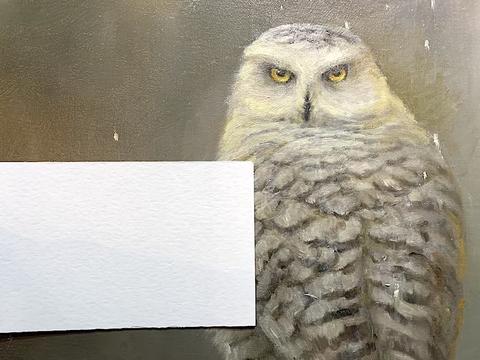
I put a white piece of paper next to my still life painting to help you compare the whites. Note the pure white paper compared to the white in the painting. Can you see how much color really goes into this?
And learn more from Lori McNee with her popular painting video workshop “Luminous Landscape Painting” (preview it below!)
Related Article on Painting and Color > Jennifer Balkan on A Short History of the Color Blue
“Contemporary artist Jennifer Balkan on the color blue, expressionism, and distorting reality to evoke emotion. She says, ‘I do not think I could survive without a true blue…’


